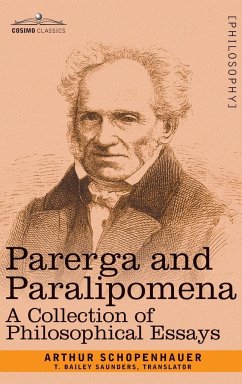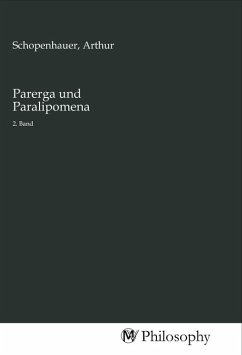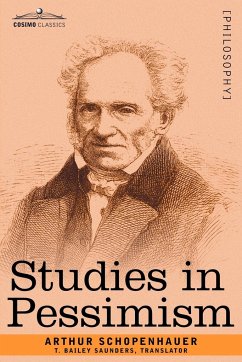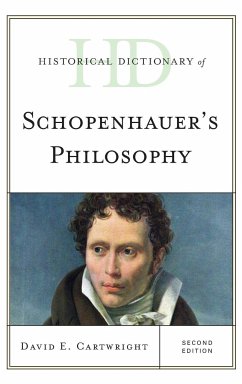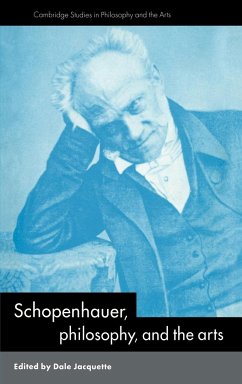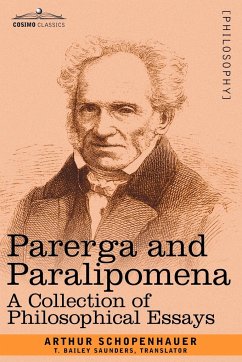
Parerga and Paralipomena
A Collection of Philosophical Essays
Versandkostenfrei!
Versandfertig in 1-2 Wochen
46,99 €
inkl. MwSt.
Weitere Ausgaben:

PAYBACK Punkte
23 °P sammeln!
This is the only complete English translation of one of the most significant and fascinating works of the great philosopher Arthur Schopenhauer (1788-1860). The Parerga (Volume 1) are six long essays; the Paralipomena (Volume 2) are shorter writings arranged under thirty-one different subject-headings. These works won widespread attention with their publication in 1851, helping to secure lasting international fame for Schopenhauer. Indeed, their intellectual vigor, literary power, and rich diversity are still extraordinary even today.



